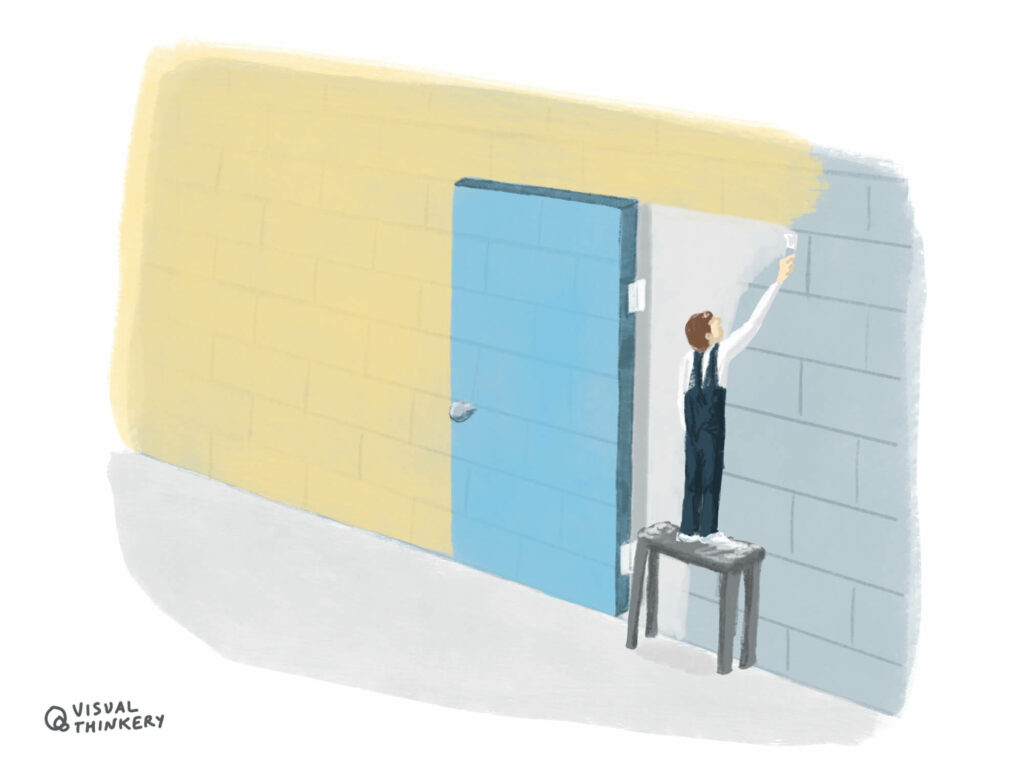Painting over problems with AI in the third sector

Attending professional events can often reveal the wildly different mental models that underpin the work that we do. This was particularly evident to me at an event I attended yesterday, where the speakers’ worldviews seemed to differ significantly from my own. It’s a reminder that even within sectors where we assume shared values, such as the third sector, we can understand and interpret the world in vastly different ways.
For instance, the speakers at this event clearly demonstrated that you can work in the third sector and still uphold capitalist values. For example, focusing on ‘closing the gap’ without questioning why, in fact, the gap exists in the first place. To my mind, it’s not enough to merely address disparities; we should be challenging the structures that create these disparities.
Advocacy and activism should be integral to third sector work, pushing for systemic change rather than just mitigating symptoms. Yet much of what I heard was a ‘hope’ that people won’t be left behind in an inevitable AI-driven future, without a critical examination of how this future is shaped and who it benefits.
I also encountered some confusing references in passing to ‘AI literacy’. This term was used in a way that often lacked clarity and coherence. In my thesis, I argued that new literacies are not thresholds to reach but conditions to attain. AI literacy should be treated no differently from other digital literacies, requiring deliberate practice and an understanding of underlying mechanisms. It’s about encouraging and developing ‘habits of mind’ that allow individuals to navigate and critically engage with AI technologies.
We’ve been exploring definitions at ailiteracy.fyi, and I’m convinced that, as with other forms of literacy, definitions are a power move, with individuals and organisations seeking to dictate what does or does not constitute ‘literate practice’. AI literacy is one of many digital literacies involving not only technical skills but also an understanding of the ethical, societal, and economic implications of AI. Feel free to read about the eight elements which underpin this here.
Going back to third sector organisations and AI, the rush to adopt this particular technology seems to be mainly focused on increasing service efficiency due to limited budgets and challenges around funding. This is necessary due to a lack of funding, which is a symptom of our capitalist system, with its ‘winners’ and ‘losers’, inevitably leaving whole sections of the population behind.
Organisations find themselves in a position where they must continuously do ‘more with less’, driving them to embrace technologies that promise efficiency without questioning the broader implications. This often leads to a superficial adoption of AI, focusing on immediate gains rather than long-term, sustainable, and equitable solutions.
We need to think differently. If we can’t adopt a holistic and inclusive perspective towards humanity, how can we expect to do so for our interdependent ecosystem? While AI has the potential to aid in climate mitigation and health improvements, we have to collectively adopt a new mental model to use it effectively. Otherwise, it’s going to be an accelerant for a somewhat-dystopian future; not because the technology itself is problematic, but because of the structures within which it is used.
This means rethinking our values and approaches, moving away from a mindset of competition and scarcity towards one of collaboration and abundance. It may sound utopian, but only then can we harness technology’s potential to create a more just and equitable world.
Image CC BY-ND Visual Thinkery. Bryan originally created this to illustrate the concept of ‘openwashing’ but I think it also works in relation to what I’m talking about here: people pretending that there’s anything other than a big wall between the haves and the have-nots in society.
